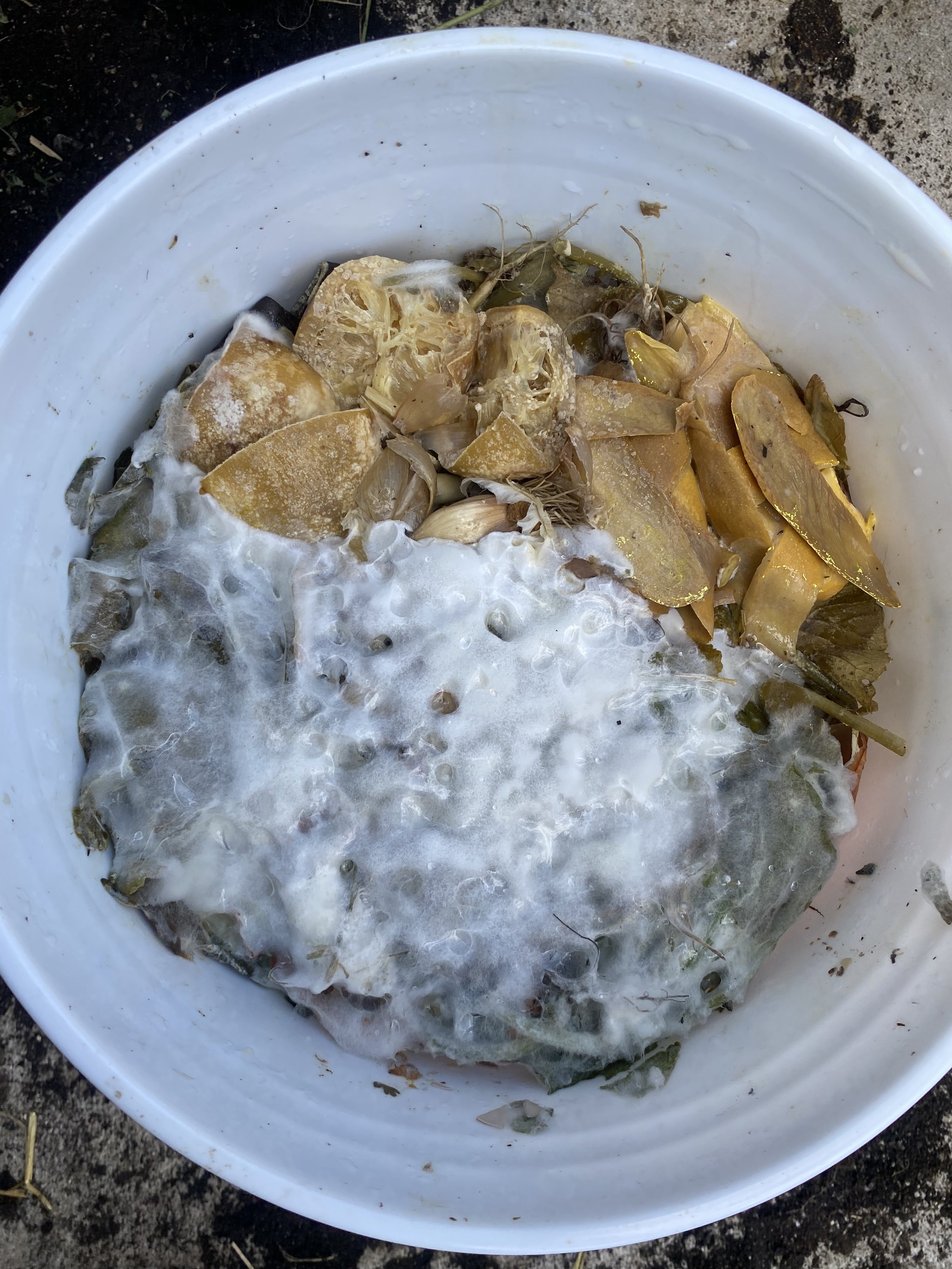
What does it take to make a successful compost pile?
Creating a successful compost pile offers various approaches, and the method chosen depends on individual circumstances and goals. In my classes, I provide a comprehensive overview of diverse composting techniques, encouraging participants to identify the method that best suits their unique needs. I employ a three-step composting system at home, incorporating bokashi composting, cold composting, and vermicomposting. This approach is not only effective but also engaging - making it easy and fun to demonstrate to large groups.
During these classes, I delve into the advantages of composting and explore how our compost can be utilized to enhance soil, environmental, and human health. A unique aspect of my teaching involves drawing parallels between soil health and human health, through the gut microbiome and offering insights into improving our inner soil. My overarching mission is to inoculate mind, body, and soil with the empowering knowledge of composting. Below you'll find samples of the content I cover in my classes;
Microscopy demonstrations can be a wonderful addition to any party, festival, or event! My mission revolves around dispelling the misconceptions surrounding microorganisms and fostering a deeper connection between individuals and their microbial counterparts through engaging microscopy displays.
I actively encourage participants to contribute samples of compost, soil, homemade biological inoculants, or any specimen of their choice for a closer examination. Equipped with a sizable TV and camera setup, I can project microscope images, making it ideal for large group gatherings. This technology has proven effective in facilitating workshops on composting, compost tea preparation, and even judging compost competitions. Join me in the captivating exploration of the microbial universe as we embark on a collective learning experience!
Microscopy Demonstration
Soil Health is Human Health
The benefits of adding microbial rich compost to your soil extend far beyond just soil health because when the soil is healthy, the plants will be healthy, and in turn we will be healthy. When plants are being grown with synthetic chemicals they are limited to the minerals in those formulas. These farming methods have led to a loss of nutrient density in our food and thus in our bodies. The lack of nutrition in our food is the root cause to much of the illness and disease we see today. However, In healthy soils, plants are able to obtain a diverse range of minerals and nutrients through their relationships with microbial life. Healthy soil restores the nutrition in our food and health of our bodies.
The three step composting system is the easiest and most efficient way to make high quality biologically diverse compost from organic house hold waste
Bokashi composting is the first step in this three step system. Regardless of if you chose to use the three step system or not, bokashi composting is what I like to do with all my organic house hold waste before adding it to my other composting system because bokashi composting is highly effective at breaking down materials so it will ultimately take less time for the material to decompose and turn into usable compost.
After 3-4 weeks of fermentation the bokashi compost will be pre-digested by the anaerobic organisms and it will be ready to be added to the outdoor cold compost pile. You will be suprised by how quickly this material decomposes after the bokashi fermentation compared to raw materials.
The last step will be to add the material from your cold compost to your vermicompost bin where worms will finish the decomposition process and add an abundance of microbial biodiverity that will increase the content of humic acid. The finished compost from your worm bin will be very high quality soil inoculant to improve plant and soil health.
Compost is a regenerative substance that has the capability to restore the health of our soils, our plants, and our own bodies. With compost as a tool, we can rebuild the organic architecture around us by integrating with the microbial community, and remembering we are the protectors of this planet. As such it is our responsibility to preserve all forms of life on our beautiful Earth.
The true beauty of compost is that it can be used to remediate many of the negative impacts brought on by human activity and restore our connection with nature
- Alexa Kipper
In society a sterile culture has emerged that teaches us to fear the microscopic world. Antibiotics, cleaning products, pesticides have all been overused to the point where we have severely disrupted and altered the natural balance of life.
Microorganisms perform vital functions within our bodies; we could simply not survive without them. We may perceive ourselves as individual humans but in reality we are a symbiotic fusion of many organisms known as a holobiont.
These microorganisms are nothing to fear. In fact they should be celebrated and revered. Humans plants and animals have been co evolving with microbial species for billions of years. Our bodies contain trillions of microorganisms including bacteria, archaea, yeast, fungi, protists, viruses and more. The human body contains 10 times more bacteria cells than human cells.
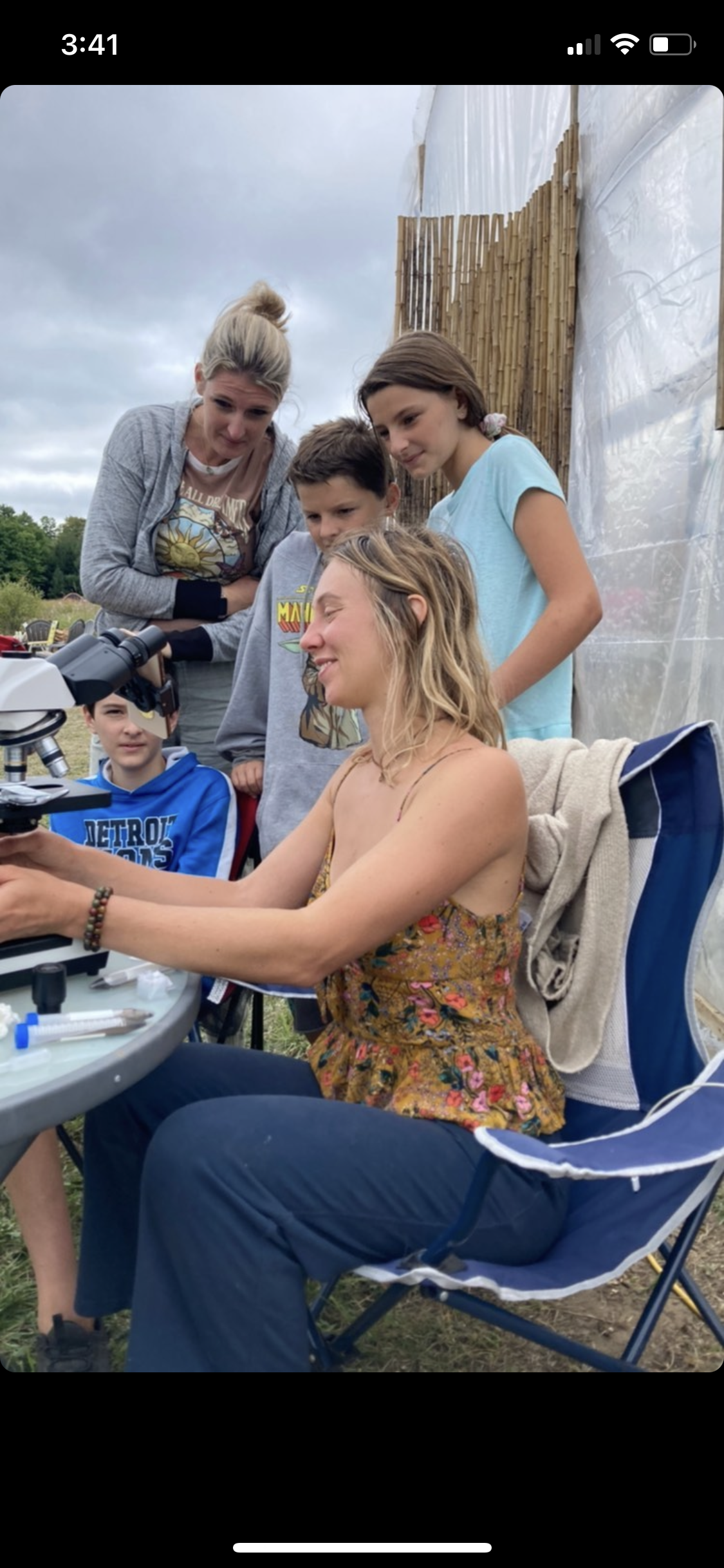
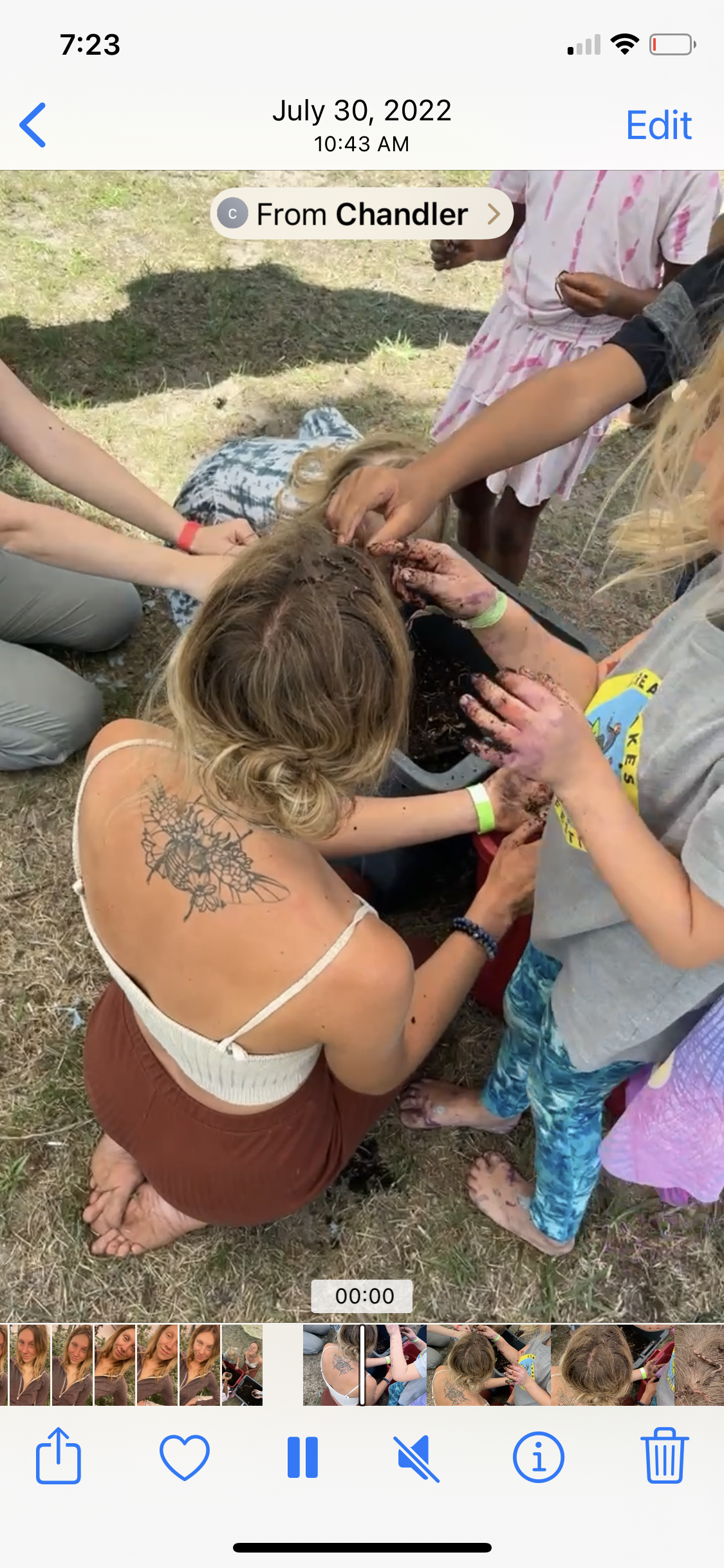
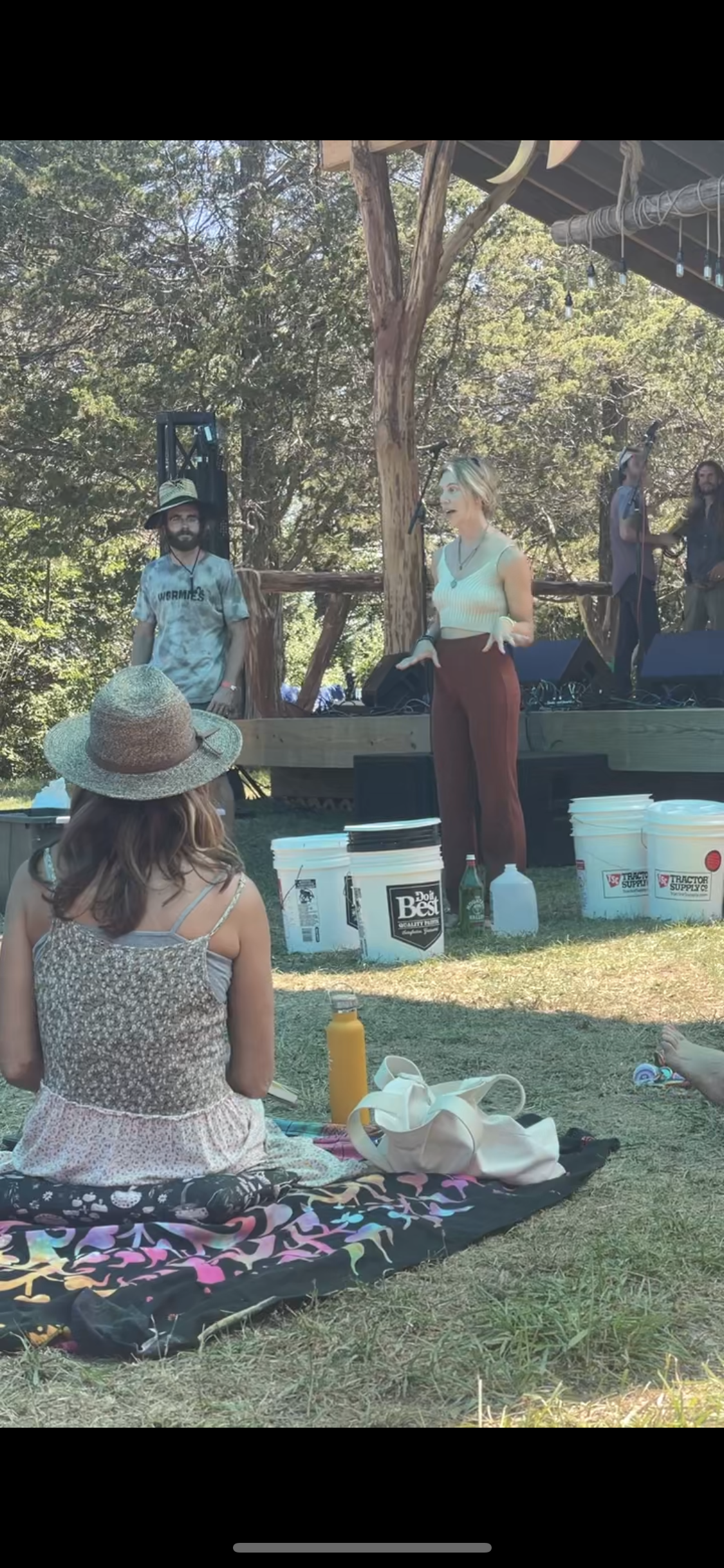
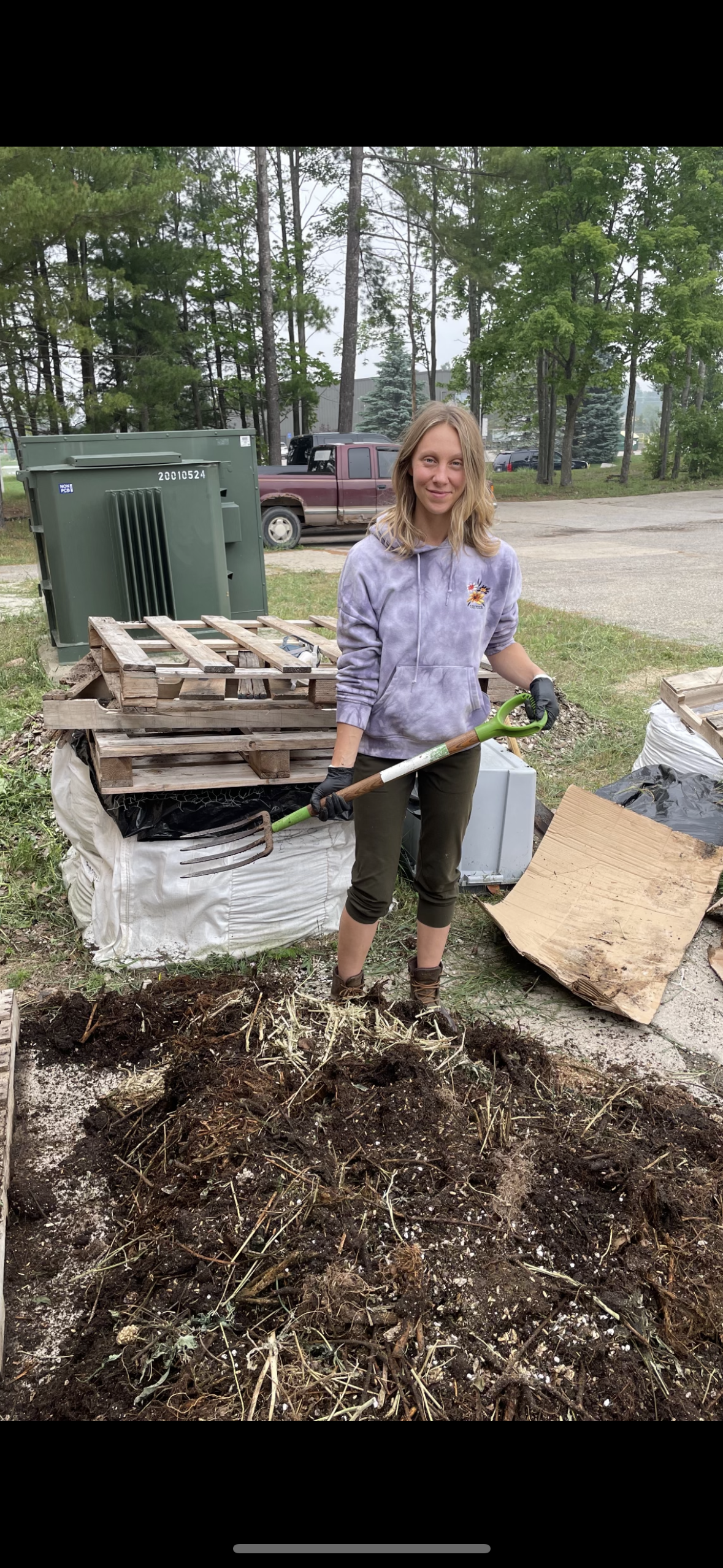
Contact
Having an event and looking for a compost educator? Please fill out the inquiry below with a detailed information about the event. I look forward to connecting!


